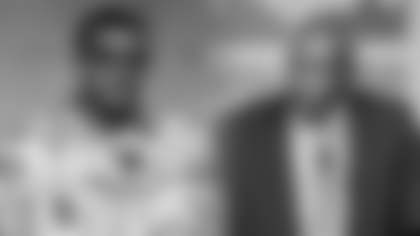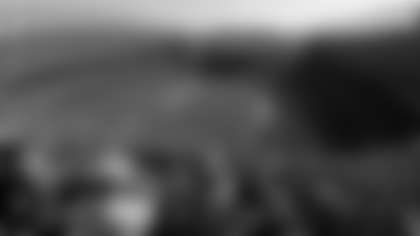The history of the Denver Broncos and Indianapolis Colts goes way back to when the Colts were still in Baltimore, and has been intertwined for decades, like so many things in Denver sports history, because of Hall of Fame quarterback John Elway.
There is much publicity given today to every year's crop of players, what with multiple television networks and all analyzing each draft, but it is almost unimaginable how good a prospect John Elway was, how desirable he was to so many teams, and of course, that he actually turned out to be every bit as great at the hype.
But when he was drafted by the Colts in 1983, Elway made it very clear he did not wish to play in Baltimore and in fact might opt to play professional baseball instead.
Many NFL teams expressed interest in trading for the Stanford great, but virtually every team made their trade requests to Colts general manager Ernie Accorsi or head coach Frank Kush. But whether by the significance of the pick or other reasons, Colts owner Robert Irsay was determined to handle this trade himself.
And Mr. Irsay was the one man to whom Broncos owner Edgar F. Kaiser Jr. placed his call.
Kaiser was always polite and deferential to the elder Irsay, and it was much appreciated by the Colts owner, who often referred to the Broncos owner as "that nice Kaiser boy."
I can say I was present when Mr. Kaiser called Mr. Irsay and had that first conversation, after which Mr. Kaiser told me, "We are moving on Elway. We are halfway there, and we have halfway to go."
I could write a book about the entire moment in time when Edgar Kaiser set out to acquire Elway, beginning on Nov. 28, 1982, when Mr. Kaiser first told me of his serious desire to somehow get Elway on his team.
But this is not a book, so the reader in this case must settle for a dramatically edited version of events.
Kaiser and Irsay talked on draft day, and they talked again. Then one week later I was on the phone when Broncos general manager Hein Poulus casually sauntered into my office and said, "The Elway deal is done. Finish your call and come see me about a press release."
I quickly dispatched the caller, a local radio sportscaster, and went to see Hein.
This was the day before computers and laptops, so everything one typed was on a typewriter and was the very definition of laborious.
He asked how long it would take me to write the enormous statistical release necessary for John Elway, and I said, "It's already done. Mr. Kaiser told me on draft day this moment might come, so I started getting ready then."
"Good boy," Hein said.
The Broncos brain trust met Elway on his private plane at that evening. Hein called me at 8:30 p.m. to say we had a deal, and we had a 10:30 p.m. press conference one week after the draft to announced our trade with the Colts, certainly the greatest trade in Denver Broncos history.
Of course, everyone knows how the story wound up, but one of the great elements of Elway's career was his fourth-quarter comebacks, a statistical category that I personally created, checking with every team and on every quarterback to tally their totals.
But our Colts connection continued with his comeback history as well, as Elway's very first one was against the then-Baltimore Colts.
It was on Dec. 11, 1983 at Mile High Stadium, and the Colts had built up a 19-0 advantage heading into the fourth quarter.
Then, Elway happened.
The rookie superstar threw three fourth-quarter touchdown passes to lead the Broncos not just to a comeback win, but to a playoff-clinching victory.
That was just Denver's fourth playoff appearance, but Elway's first, and if we now are all spoiled by our great postseason history, Broncos Country can thank John Elway for his enormous and at times seemingly single-handed role in creating that history.
By the way, Mr. Irsay disliked the owner's booth at old Mile High due to the tightness of the quarters, so he watched that game, as he so often did in Denver, literally sitting on a step (really, on a step) in our public address booth with our great P.A. man Alan Cass and his spotter, Karl Eggert.
My personal memories of John Elway, his acquisition, and of Mr. Irsay and his Colts just lead one to another, and the composite of them is for another place and time.
Denver's rivalry with the Colts is rekindled in Indianapolis again this week.
But if one is writing or telling a history of the Broncos, it cannot be done without significant mention of Denver's relationship with the Colts and John Elway.















